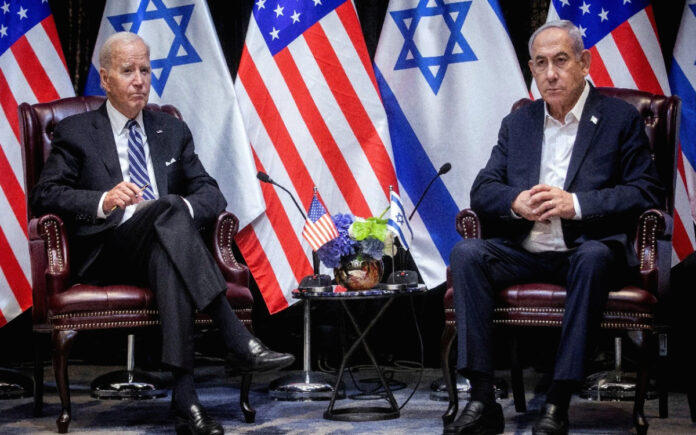Washington: The decision by U.S. President Joe Biden to temporarily halt some military aid to Israel amid escalating tensions with Russia was a direct result of a tense phone call between Biden and Israeli Prime Minister Benjamin Netanyahu, a U.S. official revealed.
During the April 4 call, following the deaths of seven aid workers from World Central Kitchen in an Israeli airstrike, Biden issued a clear ultimatum to Netanyahu: protect civilians and aid workers, or face a shift in U.S. policy.
The move came after sustained pressure from international allies and within Biden’s own Democratic Party to condition billions in aid to Israel over concerns about civilian casualties during the conflict in Gaza. While the two leaders had engaged in numerous difficult discussions prior to April 4, this conversation was particularly significant, marking a turning point in their relationship.
Also Read | Putin Reappoints Mishustin as Russian Prime Minister Amidst Political Speculation
The White House’s decision to withhold a shipment of heavy bombs last week was a response to Israel’s actions in Rafah, where the U.S. opposes a major Israeli invasion without adequate protections for civilians. Biden, in his first public remarks about the weapons pause, expressed concerns about civilian casualties resulting from Israeli airstrikes on population centers in Gaza. Defense Secretary Lloyd Austin hinted that further weapons could be withheld.
Also Read | Israel Secures Coveted Spot in Eurovision 2024 Grand Final
While not as severe as previous actions, such as President Ronald Reagan’s 1982 ban on cluster bomb sales to Israel, Biden’s move signals a shift in the historically strong relationship between the U.S. and Israel. The decision reflects growing pressure on Israel to reconsider its military strategy and prioritize the protection of civilians.
The public nature of the weapons pause has garnered both praise and criticism. Supporters see it as a necessary step to hold Israel accountable for its actions and send a message about the limits of American support. However, Biden’s Republican opponents, who largely support Netanyahu, have accused the president of undermining Israel’s security.
Also Read | Zelenskyy Extends Martial Law in Ukraine Amid Escalating Tensions with Russia
The ongoing tensions between Biden and Netanyahu underscore the challenges of managing foreign relations, even among longstanding allies. Despite their disagreements, the Biden administration has emphasized the importance of maintaining dialogue with Israel to influence its decision-making.
As the situation in Rafah remains volatile, with a ceasefire-for-hostages deal in jeopardy, the U.S. continues to urge Israel to prioritize the safety of civilians. However, Netanyahu’s defiance and insistence on military action indicate the complexities of the relationship and the challenges of navigating the delicate balance between support and criticism.



